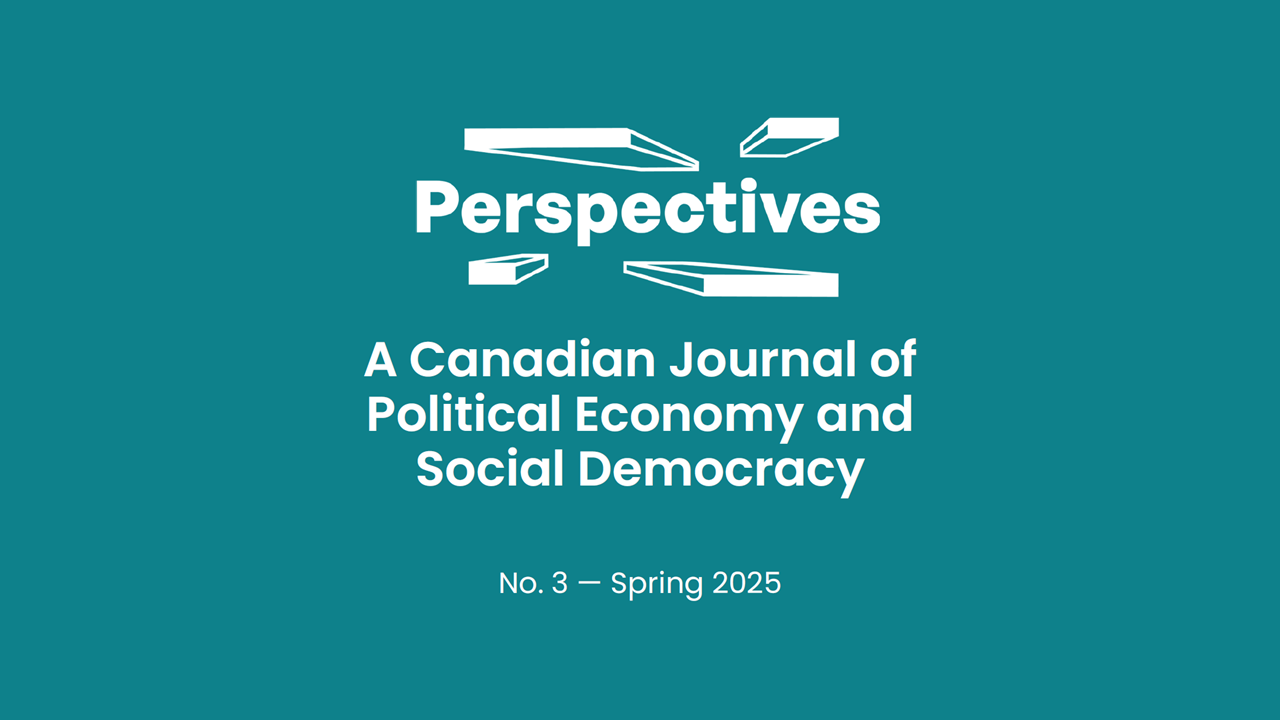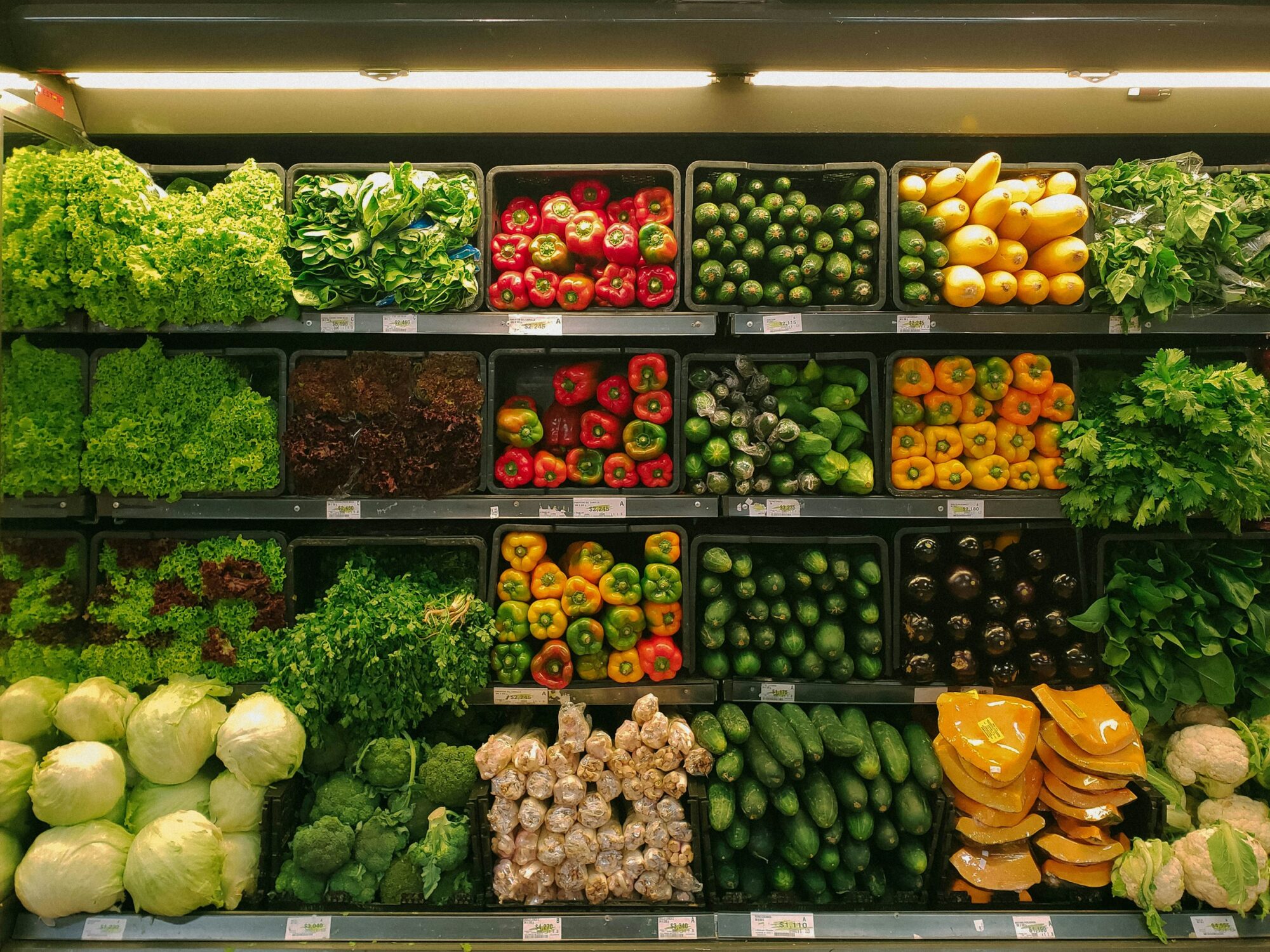- The Monopoly Problem at the Heart of Canada’s Food System – Keldon Bester & Jennifer Clapp
- Institutional Design of Price Controls in Canada – Nathan Collett & Jacob Lokash
- Constraints on Democracy: Capital Mobility and Inequality – Garrett Evans
- This Time it is Worse: Political Economy of the International Debt Crisis – Roy Culpeper
- Designing a Rights-Based National Child Care Strategy: Lessons from Europe – Kaitlin Peters
- From Public Power to Public Grocers in Canada: ‘Zoning Out’ for Economic Democracy – Nick Pearce
- Review: Kevin Lambert’s Real Estate Realism – Aaron Obedkoff
At the time of writing, multiple economic and political developments over recent months have clouded Canada with an atmosphere of uncertainty. Despite general discontent with the present state of the country, a new civic nationalism has emerged. This confusing discrepancy takes place amid a federal leadership vacuum in the resignation of Justin Trudeau and the selection of Mark Carney as the new leader of the Liberal Party of Canada. Meanwhile the re-elected President Donald Trump in the United States seeks an economic war with the rest of the world. It is the economic aftershocks first induced by the COVID-19 pandemic in 2020, the inflation crisis and widening inequality that followed, as well as the subsequent failure of liberal and “Third Way” governments in the West to adequately address these emergencies that have brought us to this contentious point.
According to the 2024 Ellen Meiksins Wood Lecturer Isabella Weber in the New York Times, reacting to Trump’s re-election in the US: “Unemployment weakens governments. Inflation kills them.” This rang true again in Germany, just a few months later, as the Social Democratic Party (SPD)-led coalition government faced a massive defeat in the February 2025 election. The junior Liberal Party partner ended up missing the 5% legislative threshold and is no longer represented in the Bundestag, while the Alternative for Germany (AfD) took in the largest gains for a far-right party in the country since the fall of the Nazis. In exit polling, 75 percent of AfD voters agreed that prices are rising so much that they can’t pay their bills. The Left Party (Die Linke) also agreed, and the party’s late campaign push on inflation and anti-racism arguably brought it back from the brink of missing out on Bundestag representation.

Is a similar far-right swing in store for Canada at the next federal election, despite the nationalist bravado associated with a surge in the leaderless Liberal Party’s public polling numbers, at the time of writing? In its evaluation of the potential impact of US tariffs, the Bank of Canada illustrates the end result of these American policy measures and the Canadian response: consumers face higher prices.

Source: Bank of Canada, “Evaluating the potential impacts of US tariffs”, Monetary Policy Report—January 2025—In focus.
If this economic shock engineered by the United States causes a new inflationary episode, could Canada see far-right Conservatives make massive electoral gains in the looming federal election?
Ed Broadbent’s decades-long career in ideas and politics, resurfaced today through the archival research work of Seeking Social Democracy co-author Luke Savage, may show us an alternative path out of this. In 1967, responding to an open letter calling for an alliance of socialists and liberals to address growing American encroachment in Canada by the editors of Canadian Dimension, Ed Broadbent argued forcefully that the two ideologies were committed to ends so radically different that cooperation on the basis of shared Canadian nationalism, against US domination, was both incoherent and impossible. Liberalism, as Ed observed, has offered no real defence against the far-right at home and abroad.
For Ed, real independence for Canada meant building an egalitarian society to reinforce sovereignty and liberty, separate from the United States and its liberal idealism that supplants equity and justice for individual freedoms. For socialists to join with liberals in this project of national independence would be a mistake, since their compliance and complicity with American capital make them poor allies in resistance against the power of the US Empire. But what is to be done by a socialist program made to protect Canadians against US domination?
To meet the moment, this issue of Perspectives Journal no. 3 features a collection of articles that address the fight against inflation, the systems of capital that have brought us to this point, and the alternative systems Canadians can build to tariff-proof and inflation-proof the economy.
Keldon Bester of the Canadian Anti-Monopoly Project and Professor Jennifer Clapp, Broadbent Fellow and Canada Research Chair in Global Food Security and Sustainability get to the heart of Canada’s food system and address the market concentration that has influenced inflated food prices. Complementary to this analysis is a study of the institutional design of price controls in Canada by Nathan Collett at the Massachusetts Institute of Technology and Jacob Lokash at the University of Toronto’s Faculty of Law. By demonstrating how a system of price controls across Canada’s federal jurisdiction ought to work, this policy tool should very well complement a progressive inflation-fighting package.
Bringing us to this crisis point of instability and uncertainty is a financial system surrounding capital that works to subvert democracy in the interest of wealth accumulation. As demonstrated by the partnerships between the US Republicans and Silicon Valley billionaires, as well as the alliance of ordoliberals and right-wing nationalists among the AfD in Germany, far-right movements tend to find comfortable partners in capital. Garrett Evans brings an analysis forward on how the rich exert outsized influence to subvert democratic regimes by using the immense power of capital mobility, contributing to today’s growing inequality. Broadbent Fellow Roy Culpeper also looks at the outsized influence of capital and its engineering of crisis among Global South countries through debt and financialization.
Alternative systems embedded in decommodification help to build resilience against inflationary pressures. By removing the profiteering incentive associated with the “sellers’ inflation” phenomena of price coordination around economic shocks, it becomes much easier to defend ordinary Canadians against cost-of-living pressures. Kaitlin Peters brings forward an analysis of a rights-based national child care strategy in this moment of crisis to support economic growth. The Green Economy Network’s Nick Pearce invokes a progressive reversal of Quinn Slobodian’s Crack-up Capitalism in carving out zones of democratic institution-building like public grocers that would help to fight price gouging experienced by many working-class Canadians.
This moment is captured in the theme of the Broadbent Institute’s 2025 Progress Summit: Daring to Take on Today’s Crises, taking place April 9-11 in Ottawa where Perspectives Journal no. 3 is initially released. Amid this nationalist fervour is a desire to protect Canadian institutions such as public healthcare – a profoundly distinct and equalizing system that has insulated the Canadian working-class from the affordability experiences of Americans, whose strong support for the assassination of health insurance CEOs indicate a desire for non-market change. While recent electoral outcomes in the West suggest Canada may be headed for a far-right surge, a progressive program that directly addresses the fight against inflation could provide an alternative path.




